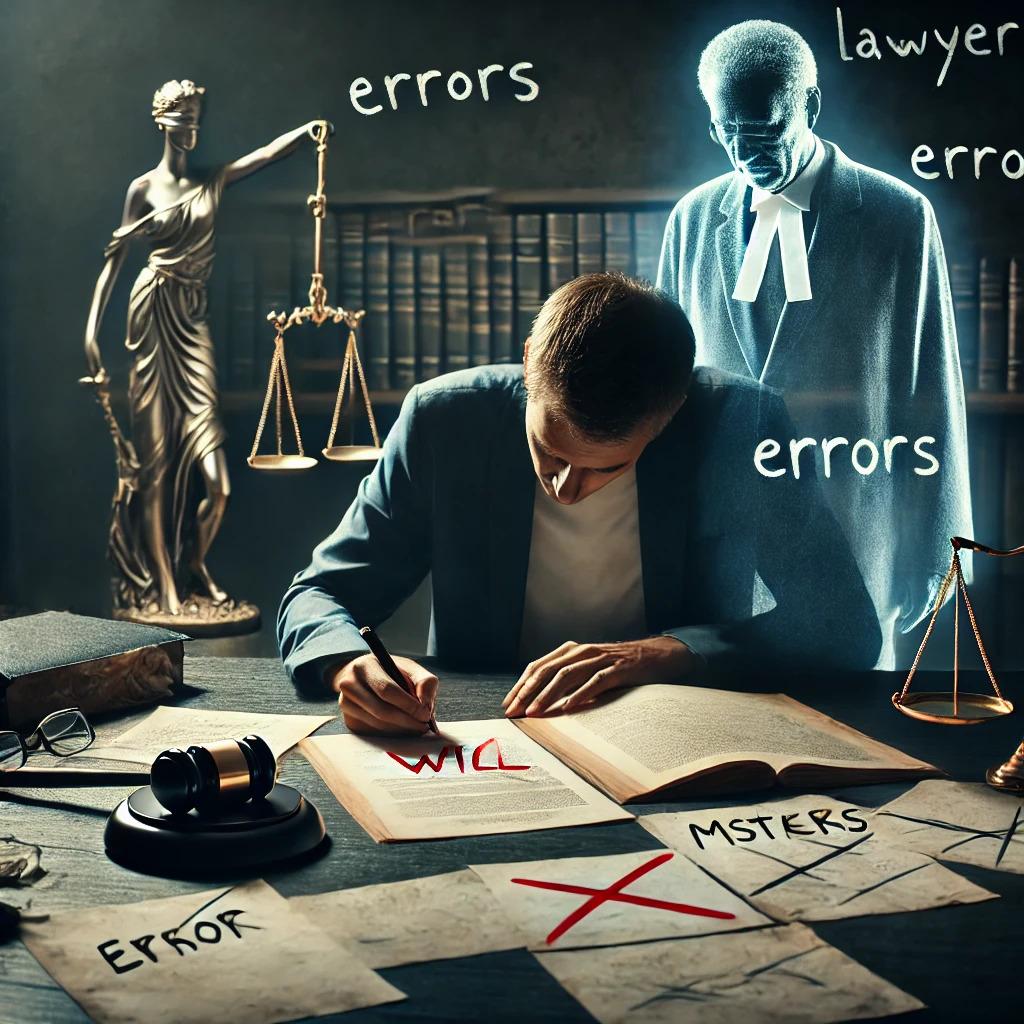Writing a will is one of the most critical steps in estate planning, ensuring that your assets are distributed according to your wishes. However, many people make crucial mistakes, leading to disputes, legal issues, and unintended consequences. In this blog, we'll explore the common mistakes to avoid when drafting a will and how wills and estate lawyers can help you create a legally sound document.
Why Is Having a Will Important?
A will is a legally binding document that outlines how your estate should be managed and distributed after your death. Without a valid will, your assets may be distributed according to provincial laws, which may not align with your wishes. This is why consulting with wills and estates lawyers in Ontario or your local jurisdiction is crucial to ensuring your will is properly drafted and legally enforceable.
Common Mistakes to Avoid When Writing a Will
1. Not Having a Will at All
The biggest mistake people make is not having a will in the first place. Many assume they don't need one because they don't own significant assets, are young, or believe their family will handle everything reasonably. However, without a will, your estate will be distributed based on Ontario's intestacy laws, which may not reflect your actual wishes.
2. Failing to Update Your Will
Life circumstances change, and so should your will. If you have experienced significant life events such as marriage, divorce, childbirth, or acquiring new assets, your will should be updated accordingly. Failing to do so can lead to outdated instructions that may no longer be relevant or legally valid.
3. Using Ambiguous Language
Your will must be clear and precise. Vague or ambiguous wording can cause confusion and disputes among beneficiaries. For example, saying "I leave my assets to my children" without specifying which children (biological, step, or adopted) can lead to legal battles. Working with wills and estates, lawyers can ensure clarity and avoid misunderstandings.
4. Not Appointing the Right Executor
Your executor manages your estate and ensures your wishes are followed. Choosing the wrong person, such as someone who is financially irresponsible or incapable of handling legal matters, can result in delays and complications. It's wise to appoint a trusted individual or even a professional executor recommended by wills and estate lawyers.
5. Forgetting to Include All Assets
Many people forget to include certain assets in their will, such as:
- Digital assets (social media accounts, cryptocurrency, online businesses)
- Personal possessions of sentimental value
- Jointly owned properties or bank accounts Ensuring that all assets are accounted for can prevent confusion and unintended consequences.
6. Not Considering Tax Implications
Estate taxes and probate fees can significantly reduce the value of your beneficiaries' inheritance. Proper estate planning with the help of wills and estate lawyers in Ontario can help minimize tax burdens and ensure your loved ones receive the maximum benefit from your estate.
7. Failing to Name Alternate Beneficiaries
Suppose your primary beneficiary passes away before you or cannot inherit; not having a backup plan can create complications. Always name alternate beneficiaries to avoid distributing your assets according to intestacy laws.
8. Ignoring Guardianship for Minor Children
If you have minor children, your will should specify a guardian in the event of your passing. Without this, the court will decide who cares for your children, which may not align with your wishes. Wills and estate lawyers can help ensure the guardianship section of your will is legally enforceable.
9. DIY Wills Without Legal Guidance
Online templates and DIY wills may seem like a cost-effective solution, but they often lack the legal language required to be valid. Mistakes in wording, signing, or witnessing can render your will invalid. Consulting wills and estate lawyers ensure your will complies with all legal requirements in Ontario or your jurisdiction.
10. Not Having Witnesses Sign Correctly
For a will to be legally valid, it must be signed by at least two witnesses who are not beneficiaries. The will may be challenged or deemed invalid if this requirement is not met. Wills and estate lawyers in Ontario can guide you through the correct signing procedures.
How Wills and Estate Lawyers Can Help
Drafting a will can be complex, and mistakes can have long-lasting consequences for your loved ones. Wills and estate lawyers provide professional guidance, ensuring that:
- Your will is legally sound and enforceable.
- All assets, including digital and non-traditional assets, are accounted for.
- Tax implications are considered to minimize burdens on beneficiaries.
- Guardianship and executor appointments are clear and well-planned.
- The will complies with Ontario estate laws and legal requirements.
Final Thoughts
Writing a will is essential to estate planning, but mistakes can lead to legal issues and disputes. By avoiding these common errors and working with wills and estate lawyers in Ontario, you can ensure your wishes are respected and your loved ones are cared for. If you haven't created or updated your will, now is the time to consult a professional to protect your legacy.
For expert legal assistance, contact a trusted wills and estate lawyer today and secure your family's future.

